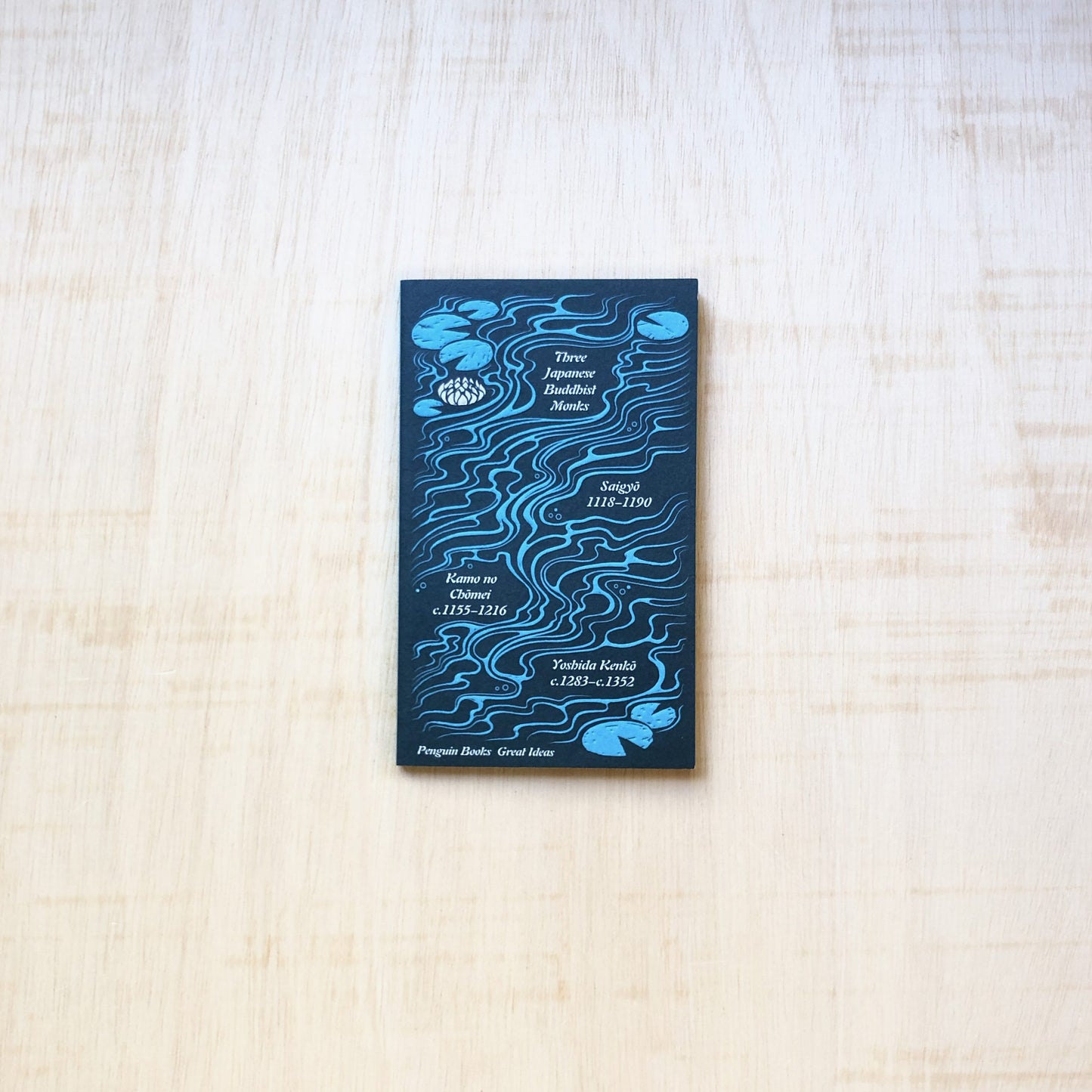Three Japanese Buddhist Monks
Three Japanese Buddhist Monks
Kamo no Chōmei, Saigyō und Yoshida Kenkō
Penguin Great Ideas
2020
Paperback
978024147291018.1 x 11.1 x 1
112 pages
Normaler Preis
9,50 €
Normaler Preis
Verkaufspreis
9,50 €
Grundpreis
pro
inkl. MwSt.
Verfügbarkeit für Abholungen konnte nicht geladen werden
'I have relinquished all that ties me to the world, but the one thing that still haunts me is the beauty of the sky
These simple, inspiring writings by three medieval Buddhist monks offer peace and wisdom amid the world's uncertainties, and are an invitation to relinquish earthly desires and instead taste life in the moment.
One of twenty new books in the bestselling Penguin Great Ideas series. This new selection showcases a diverse list of thinkers who have helped shape our world today, from anarchists to stoics, feminists to prophets, satirists to Zen Buddhists.
Kenkō (兼好, 1283–1350) was a Japanese author and Buddhist monk. His most famous work is Tsurezuregusa (Essays in Idleness) one of the most studied works of medieval Japanese literature. Kenko wrote during the Muromachi and Kamakura periods.
Kamo no Chōmei (鴨 長明, 1153 or 1155–1216) was a Japanese author, poet (in the waka form), and essayist. He witnessed a series of natural and social disasters, and, having lost his political backing, was passed over for promotion within the Shinto shrine associated with his family. He decided to turn his back on society, took Buddhist vows, and became a hermit, living outside the capital. This was somewhat unusual for the time, when those who turned their backs on the world usually joined monasteries. Along with the poet-priest Saigyō he is representative of the literary recluses of his time, and his celebrated essay Hōjōki ("An Account of a Ten-Foot-Square Hut") is representative of the genre known as "recluse literature" (sōan bungaku).
Saigyō Hōshi (西行法師, 1118 – March 23, 1190) was a famous Japanese poet of the late Heian and early Kamakura period.


